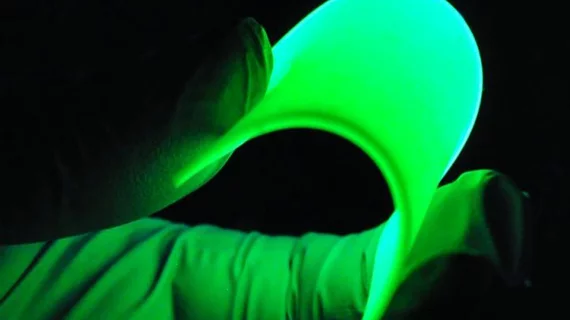Scientists develop new low-cost, environmentally friendly x-ray technology
Researchers have created a low-cost, environmentally friendly material that could have a big impact on x-ray technology.
Florida State University scientists recently described their approach to developing novel x-ray scintillators in Nature Communications. It involves replacing lead or heavy metals with an organic compound for a more versatile, flexible detector.
Co-author of the Aug. 28 study, Biwu Ma, PhD, a professor in the Department of Chemistry and Biochemistry at the Tallahassee, Florida, institution said their approach is an important step in developing eco-friendly imaging techniques.
"Developing low-cost scintillation materials that can be easily manufactured and that perform well remains a great challenge," Ma added in an Aug. 31 statement. "This work paves the way for exploring new approaches to create these important devices."
X-ray scintillators convert radiation into visible light, but the materials commonly used to make them, such as lead, come with toxicity concerns and can be expensive to manufacture.
Ma and colleagues, however, used organic manganese halide to make a powder that is well-suited for imaging, they noted. And it can be paired with a polymer to create a “flexible composite” for a scintillator.
"Researchers have made scintillators with a variety of compounds, but this technology offers something that combines low cost with high performance and environmentally friendly materials," Ma said Monday. "When you also consider the ability to make flexible scintillators, it's a promising avenue to explore."

